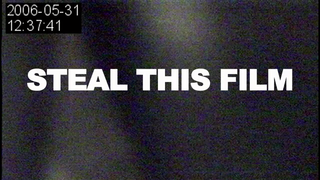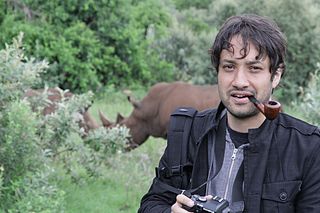
Lester Lawrence Lessig III is an American legal scholar and political activist. He is the Roy L. Furman Professor of Law at Harvard Law School and the former director of the Edmond J. Safra Center for Ethics at Harvard University. He is the founder of Creative Commons and Equal Citizens. Lessig was a candidate for the Democratic Party's nomination for president of the United States in the 2016 US presidential election but withdrew before the primaries.

Criticism of copyright, or anti-copyright sentiment, is a dissenting view of the current state of copyright law or copyright as a concept. Critics often discuss philosophical, economical, or social rationales of such laws and the laws' implementations, the benefits of which they claim do not justify the policy's costs to society. They advocate for changing the current system, though different groups have different ideas of what that change should be. Some call for remission of the policies to a previous state—copyright once covered few categories of things and had shorter term limits—or they may seek to expand concepts like fair use that allow permissionless copying. Others seek the abolition of copyright itself.
A remix is a piece of media which has been altered or contorted from its original state by adding, removing, or changing pieces of the item. A song, piece of artwork, book, poem, or photograph can all be remixes. The only characteristic of a remix is that it appropriates and changes other materials to create something new.

Dan O'Neill is an American underground cartoonist, creator of the syndicated comic strip Odd Bodkins and founder of the underground comics collective the Air Pirates.

A fan film is a film or video inspired by a film, television program, comic book, book, or video game created by fans rather than by the source's copyright holders or creators. Fan filmmakers have traditionally been amateurs, but some of the more notable films have actually been produced by professional filmmakers as film school class projects or as demonstration reels. Fan films vary tremendously in quality, as well as in length, from short faux-teaser trailers for non-existent motion pictures to full-length motion pictures. Fan films are also examples of fan labor and the remix culture. Closely related concepts are fandubs, fansubs and vidding which are reworks of fans on already released film material.

Remix culture, also known as read-write culture, is a term describing a culture that allows and encourages the creation of derivative works by combining or editing existing materials. Remix cultures are permissive of efforts to improve upon, change, integrate, or otherwise remix the work of other creators. While combining elements has always been a common practice of artists of all domains throughout human history, the growth of exclusive copyright restrictions in the last several decades limits this practice more and more by the legal chilling effect. In reaction, Harvard law professor Lawrence Lessig, who considers remixing a desirable concept for human creativity, has worked since the early 2000s on a transfer of the remixing concept into the digital age. Lessig founded the Creative Commons in 2001, which released a variety of licenses as tools to promote remix culture, as remixing is legally hindered by the default exclusive copyright regime applied currently on intellectual property. The remix culture for cultural works is related to and inspired by the earlier Free and open-source software for software movement, which encourages the reuse and remixing of software works.

The free-culture movement is a social movement that promotes the freedom to distribute and modify the creative works of others in the form of free content or open content without compensation to, or the consent of, the work's original creators, by using the Internet and other forms of media.

Gregg Michael Gillis, known by the stage name Girl Talk, is an American disc jockey who specializes in mash-ups and digital sampling. Gillis has released five LPs on the record label Illegal Art and EPs on both 333 and 12 Apostles. He was trained as an engineer.
A Swarm of Angels (ASOA) was an open source film project and participatory film community, whose aim was to make the world's first Internet-funded, crewed and distributed feature film. The collaborative project aimed to attract 50,000 individual subscribers (the "Swarm of Angels"), each contributing £25 to the production, but after three years only 1,000 subscriptions were made. This feature film and associated original media project embraces the Creative Commons notion of flexible copyright licensing, to permit people to freely download, share, and remix the original media made for the project.

Students for Free Culture, formerly known as FreeCulture.org, is an international student organization working to promote free culture ideals, such as cultural participation and access to information. It was inspired by the work of former Stanford, now Harvard, law professor Lawrence Lessig, who wrote the book Free Culture, and it frequently collaborates with other prominent free culture NGOs, including Creative Commons, the Electronic Frontier Foundation, and Public Knowledge. Students for Free Culture has over 30 chapters on college campuses around the world, and a history of grassroots activism.

Steal This Film is a film series documenting the movement against intellectual property directed by Jamie King, produced by The League of Noble Peers and released via the BitTorrent peer-to-peer protocol.

Good Copy Bad Copy is a 2007 documentary film about copyright and culture in the context of Internet, peer-to-peer file sharing and other technological advances, directed by Andreas Johnsen, Ralf Christensen, and Henrik Moltke. It features interviews with many people with various perspectives on copyright, including copyright lawyers, producers, artists and filesharing service providers.

Brett Gaylor is a Canadian documentary filmmaker living in Victoria, British Columbia. He grew up on Galiano Island, British Columbia. He was formerly the VP of Mozilla's Webmaker Program. His documentary, Do Not Track, explores privacy and the web economy.
Open Source Cinema was a collaborative website created to produce the documentary film RiP!: A Remix Manifesto, a co-production with Montreal's EyeSteelFilm and the National Film Board of Canada (NFB). It was launched in 2004 as a public beta, and in 2007 launched at the South By Southwest Interactive festival on the Drupal platform.

Remix: Making Art and Commerce Thrive in the Hybrid Economy is Lawrence Lessig's fifth book. The book was made available for free download and remixing under the CC BY-NC Creative Commons license via Bloomsbury Academic. It is still available via the Internet Archive. It details a hypothesis about the societal effect of the Internet, and how this will affect production and consumption of popular culture to a "remix culture".

Mila Aung-Thwin is a Canadian documentary filmmaker, producer and activist whose films deal with social justice.

Copyright Criminals is a 2009 documentary film directed and produced by Benjamin Franzen examining the creative and the commercial value of sampling including the related debates over artistic expression, copyright law, and money.

Tony Asimakopoulos is a Canadian film and television director based in Montreal. He often collaborates with the Montreal-based Canadian film production company EyeSteelFilm. He is best known for his autobiographical documentary Fortunate Son, about his relationship with his immigrant parents, which was one of the highest-grossing theatrical documentaries in Quebec in 2012.

The Internet's Own Boy: The Story of Aaron Swartz is a 2014 American biographical documentary film about Aaron Swartz written, directed, and produced by Brian Knappenberger. The film premiered in the US Documentary Competition program category at the 2014 Sundance Film Festival on January 20, 2014.
















